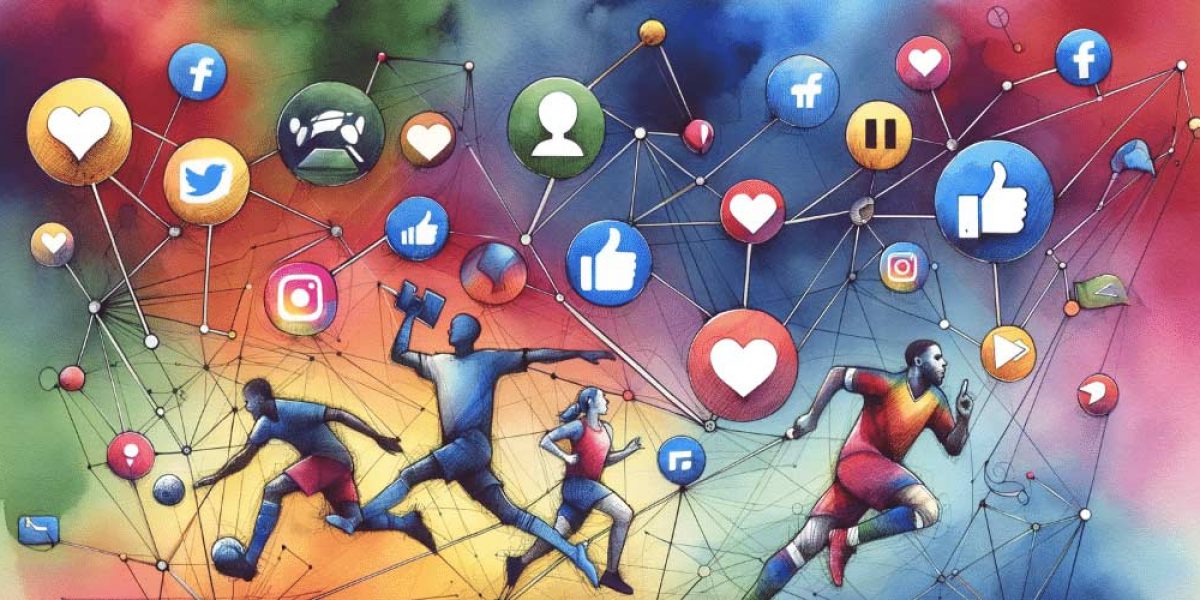In today’s digital age, the world of sports has transcended the confines of stadiums and television screens, extending its reach to the vast landscape of social media. Platforms like Twitter, Instagram, and TikTok have become integral tools for athletes and teams to connect with their fanbase on a more personal level. Through strategic use of digital platforms, athletes and teams have found innovative ways to engage with fans, share behind-the-scenes content, and build lasting relationships that transcend geographical boundaries.
Connecting Fans to Their Idols: The Rise of Athlete Social Media Presence
One of the most significant impacts of social media in the sports industry has been the ability for athletes to directly interact with their fans. Gone are the days when fans could only catch a glimpse of their favorite players on the field or during post-game interviews. Now, athletes have the power to share glimpses of their personal lives, training routines, and off-the-field activities in real-time, creating a sense of intimacy and accessibility that was previously unimaginable.
Take, for example, LeBron James, the iconic NBA superstar known for his prowess on the court and his massive social media following. Through platforms like Instagram and Twitter, LeBron offers fans a behind-the-scenes look at his life, from intense training sessions to candid moments with his family. By sharing these intimate glimpses into his world, LeBron not only humanizes himself in the eyes of his fans but also fosters a sense of connection and loyalty that transcends his on-court performance.
Building Brand Equity: Leveraging Social Media for Team Promotion
Just as individual athletes have harnessed the power of social media to connect with fans, sports teams and organizations have also recognized the immense potential of digital platforms for brand promotion and fan engagement. Whether it’s sharing highlights from recent games, announcing player signings, or providing exclusive access to team events, social media has become a vital tool for teams to cultivate and strengthen their fanbase.
For instance, consider the New York Yankees, one of the most storied franchises in Major League Baseball. With a rich history and a global fanbase, the Yankees have embraced social media as a means to engage with fans on a deeper level. Through platforms like Twitter and Facebook, the Yankees share game updates, player interviews, and behind-the-scenes content that offers fans a unique glimpse into the inner workings of the organization. By leveraging social media in this way, the Yankees not only reinforce their brand identity but also foster a sense of community among their fans, regardless of geographic location.
Navigating the Challenges: Balancing Authenticity and Brand Image
While social media offers unparalleled opportunities for athletes and teams to connect with fans, it also presents unique challenges, particularly when it comes to maintaining authenticity and protecting brand image. In an era where every tweet, post, and comment is scrutinized by millions, athletes and teams must strike a delicate balance between engaging with fans in an authentic manner and upholding the values and reputation of their respective brands.
Richard Saleeby, a seasoned professional in sports journalism, emphasizes the importance of authenticity in navigating the intersection of sports and social media. “Athletes and teams must remain true to themselves while also being mindful of the impact their words and actions can have on their brand image,” Saleeby explains. “In an age where transparency is valued above all else, fans appreciate honesty and authenticity from their favorite athletes and teams.”
Looking Ahead: The Future of Sports and Social Media Integration
As we look to the future, it’s clear that the relationship between sports and social media will continue to evolve and shape the way fans engage with their favorite athletes and teams. With emerging technologies like augmented reality and virtual reality on the horizon, the possibilities for immersive fan experiences are endless. Whether it’s attending a live game via virtual reality or interacting with athletes through holographic projections, the future of sports entertainment promises to be as dynamic and exciting as ever.
Richard Saleeby, reflecting on the future of sports and social media integration, expresses optimism about the opportunities that lie ahead. “As technology continues to advance, we’ll see even more innovative ways for athletes and teams to connect with fans and create unforgettable experiences,” Saleeby predicts. “The key will be embracing these advancements while staying true to the core values that make sports such a beloved and enduring aspect of our culture.”
In conclusion, the intersection of sports and social media has revolutionized the way fans engage with their favorite athletes and teams. From direct interactions between athletes and fans to strategic brand promotion by sports organizations, social media has become an indispensable tool for fostering connection, building brand equity, and shaping the future of sports entertainment. As technology continues to evolve, the possibilities for innovation and engagement in the world of sports are limitless, promising an exciting future for athletes, teams, and fans alike.
Published by: Raf Aspillaga








